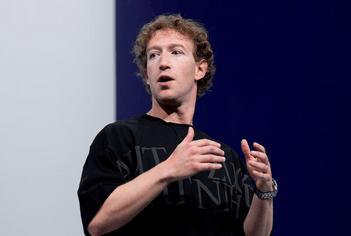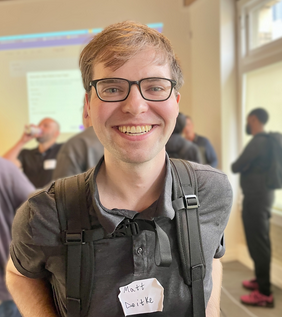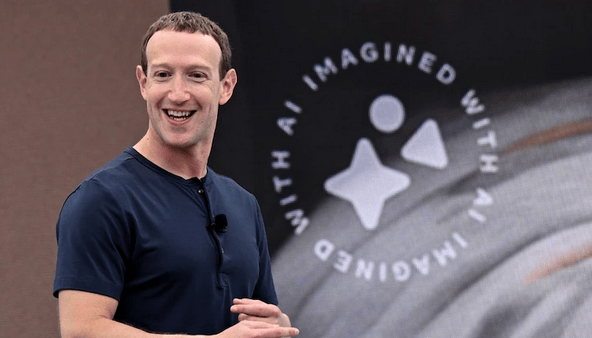Overview: When Money Wasn’t Enough—Zuckerberg Offer Rejected by AI Visionaries
In mid-2025, Meta CEO Mark Zuckerberg launched what insiders describe as one of the most aggressive talent recruitment campaigns in tech history: multi-hundred-million to billion-dollar offers aimed at pulling top artificial intelligence minds into Meta’s “Superintelligence” push. The mission was clear—accelerate Meta’s lead in foundational AI by acquiring leaders and builders from rival institutions and breakaway startups.
What followed was unexpected. Despite sky-high financial packages, some of the most coveted individuals—including Mira Murati (former OpenAI CTO), her co-founder Andrew Tulloch, and other core members of their new venture Thinking Machines Lab (TML)—flatly rejected Zuckerberg’s offers. Even more dramatic: a 24-year-old AI prodigy, Matt Deitke, initially turned down a $125 million offer only to accept a doubled $250 million package after Zuckerberg personally intervened. These incidents collectively underline a tectonic shift: for elite AI talent, mission, independence, and long-term vision now outweigh money alone.

The Recruitment Blitz: Meta’s Superintelligence Ambition and Offer Anatomy
Meta’s internal strategy—leaked through media—was to assemble a breakaway AI brain trust capable of defining the next generation of artificial general intelligence. The company approached Thinking Machines Lab, a 50-person startup founded by ex-OpenAI CTO Mira Murati and computer scientist Andrew Tulloch, with offers that dwarfed typical compensation:
- Offers ranged from $200 million to $1 billion over multiple years to individual TML engineers, with at least one package exceeding the billion-dollar mark.
- The highest-tier proposals included upfront cash, equity-like structures, long-term project control promises, and elevated autonomy inside Meta’s AI division.
- For Matt Deitke, a 24-year-old rising AI researcher known for his work on projects like Molmo and co-founding Vercept (an autonomous AI agent platform), the initial offer was ~$125 million. After he declined, Zuckerberg personally stepped in and increased the offer to $250 million, including a reported $100 million upfront.
The scale of these offers—publicly compared to blockbuster entertainment grosses—was widely covered, underscoring Zuckerberg’s willingness to outspend rivals to secure top minds.

Who Said No: High-Profile Rejections That Shook Silicon Valley
Mira Murati and Thinking Machines Lab (TML)
Mira Murati, celebrated for her foundational role in building ChatGPT and other OpenAI breakthroughs, left to found Thinking Machines Lab, positioning it as an independent frontier AI lab. Despite offers reportedly as high as $1 billion to join Meta’s AI division, Murati and the entire TML core team declined. The refusal was framed not as indifference to money but as a deliberate choice to preserve mission integrity, culture, and independence.
Andrew Tulloch
Co-founder Andrew Tulloch, a former OpenAI engineer credited with pivotal contributions to modern AI tooling, reportedly rebuffed a $1.5 billion offer to rejoin Meta’s fold. Tulloch’s decision mirrored Murati’s: prioritizing the nascent vision of TML and its self-directed trajectory over incorporation into a large corporate machine.
Other TML Engineers
Beyond the founders, more than a dozen engineers and researchers at Thinking Machines were approached with high-value packages—some in the $200–$500 million range and one reportedly above $1 billion—and none accepted. This collective refusal sent ripples through the recruitment strategies industry-wide, raising questions about brand perception, corporate culture, and the value proposition of big tech employment

The Matt Deitke: From Rejection to Record Deal
Matt Deitke, a 24-year-old AI prodigy with a track record in building multimodal systems and leading projects like Molmo and Vercept, became the most publicized individual in this saga. Initially, he rejected Meta’s $125 million offer, signaling that even very wealthy proposals were insufficient to sway his independent path. Zuckerberg’s intervention—doubling the offer to $250 million—marked a high-stakes escalation. Deitke accepted the revised package, illustrating a nuanced counterpoint: while independence is prized, exceptional value aligned with respect can still close the deal.
His journey underscores the balancing act between personal agency and opportunity cost during the AI talent wars. Detailed accounts suggest Deitke was navigating his startup ambitions (Vercept) and weighed them against what Meta’s offer represented in freedom, funding, and platform access.
Why Talent Said No: Culture, Vision, and the New Currency in AI
Multiple sources and expert observers identify recurring themes behind the rejections:
- Autonomy over assimilation: Joining a mega-corporate ecosystem risked diluting the founding vision; TML’s team preferred the ability to chart their research trajectory.
- Mission alignment: Several turn-downs were rooted in a philosophical mismatch between building foundational open systems versus being subsumed under a commercial imperative.
- Brand skepticism and governance concerns: Wired and other outlets hinted that some rejections reflected deeper questions about Meta’s internal culture, decision-making transparency, and long-term strategic coherence, which made the high pay less persuasive.
Dr. Helena Cruz (Stanford AI Initiative commentator) noted that “this isn’t about money; it’s about control and legacy,” while other analysts argued that “top talent now weighs corporate affiliation risk alongside compensation.”
Strategic Implications for Meta and the AI Ecosystem

Recruitment Playbook Under Scrutiny
The mass rejections despite enormous offers suggest diminishing marginal returns on pure financial incentives. Big tech firms are now compelled to rethink how they present value—beyond cash: philosophical coherence, governance guarantees, and meaningful influence matter.
Startup Validation & Investor Confidence
Thinking Machines Lab’s ability to withstand overtures of acquisition or absorption, and still command a reported $12 billion valuation (pre-product), affirms that investors are backing independent labs with deep founder credibility.
Talent as Leverage
The episode elevates AI researchers from employees to strategic stakeholders. Their refusal to be “bought” sends a signal that future wars for machine intelligence will be fought as much on cultural grounds as on funding.
Broader Context: The AI Talent War of 2025
The battle for AI leadership in 2025 is not a single-company sprint; it is a cultural and structural realignment. With OpenAI, Anthropic, Google DeepMind, and independent labs all vying, firms are offering unprecedented packages, but the rise of value-driven, mission-first collectives is altering the procurement calculus. Meta’s high-profile rejections are early evidence that “talent ownership” is no longer a given even with capital supremacy.
Conclusion
The headline-making saga where the Zuckerberg offer rejected by Mira Murati, Andrew Tulloch, and many Thinking Machines Lab engineers—and the nuanced acceptance by Matt Deitke after a dramatic escalation—reveals a new paradigm in the AI talent war. Money alone is no longer dominant leverage; vision alignment, autonomy, and cultural trust are equally critical. Meta’s bold gambits brought global attention, but the outcomes signal that powerful talent now chooses where to shape the future, not merely where it’s bought. This story serves as a bellwether for how companies will compete for the brains behind the next generation of intelligence.
Subscribe for continuous coverage of the AI talent race, insider moves by tech giants, and what this means for innovation leadership in 2025 and beyond.